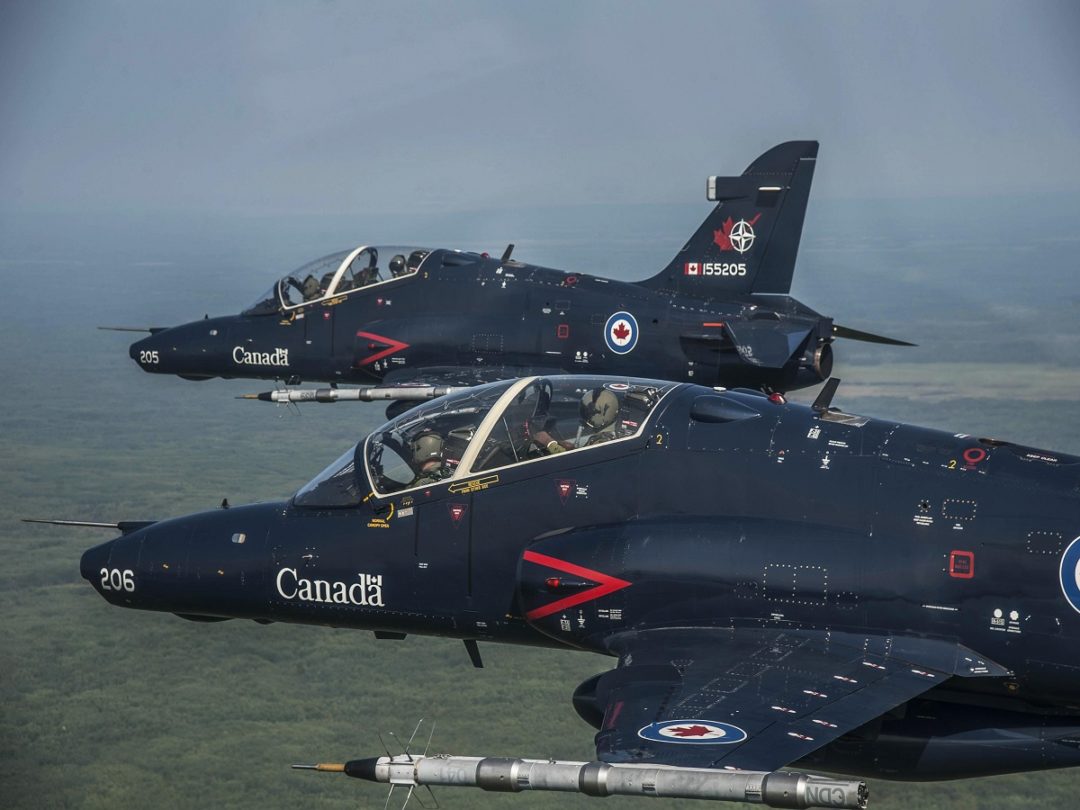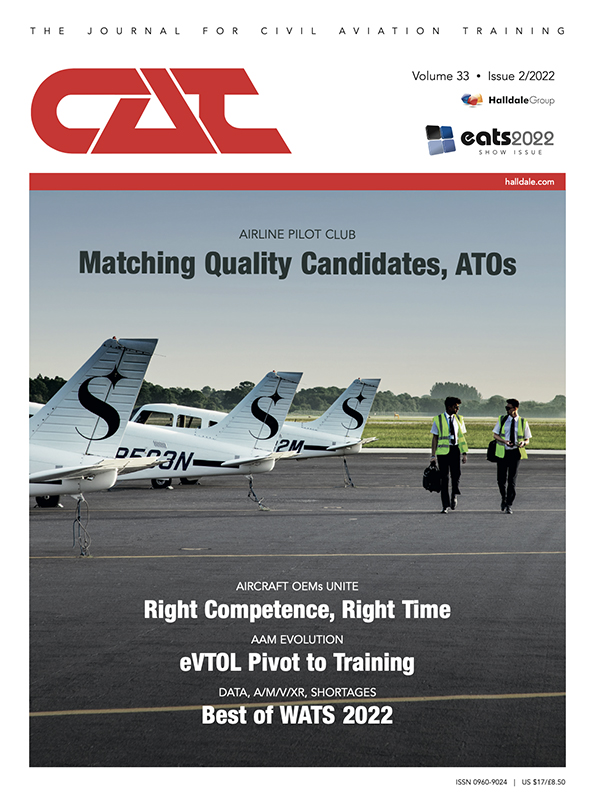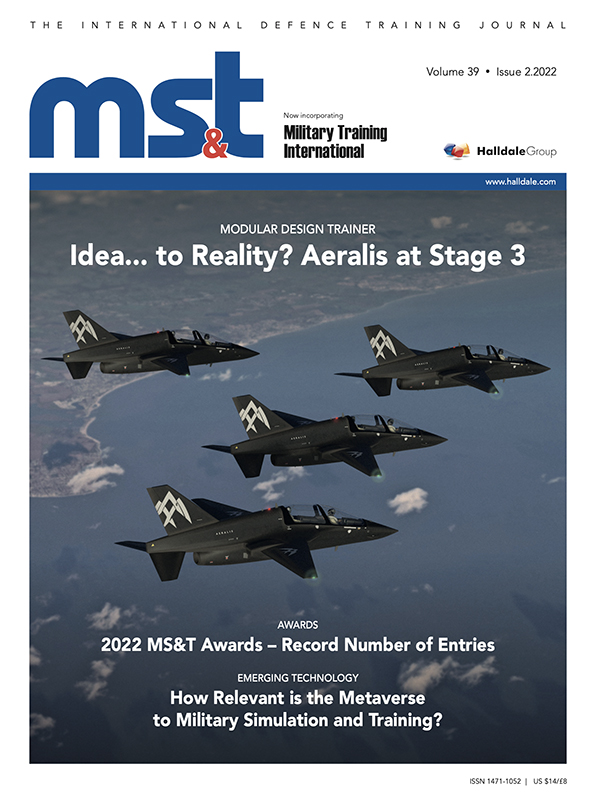This Award recognizes projects that have designed, developed, integrated and delivered complex training systems with a delivery date within the past three years. An outstanding training system integration project is one that has not only met or exceeded the project success criteria, but one that provides exceptional value to the client. Value is considered as the positive impacts on the client organization or environment.
The three finalists are:
CAE
NATO Flying Training in Canada (NFTC) program
The NFTC program is owned by the government of Canada and operated in cooperation with CAE. It combines basic, advanced, and lead-in fighter training as part of the comprehensive pilot training program CAE operates the NFTC base facilities, delivers the ground-school classroom and simulator training, and supports the live flying training on a fleet of Beechcraft T-6 (CT-156 Harvard) trainer aircraft and BAE Systems Hawk (CT-155 Hawk) lead-in fighter trainer aircraft. CAE is responsible for the overall maintenance of the aircraft under the governance of Canada’s Department of National Defence airworthiness program and partners with the RCAF to operate the two fleets. CAE also manages ground operations and performs facility maintenance, including snow removal during winter. CAE has a team of subcontract suppliers to support the training and support services provided. This team includes BAE Systems, Rolls Royce, Serco, Textron Aviation, Sodexo, and others. Since CAE has started running NFTC as the prime contractor just over four years ago, there have been a series of improvements and enhancements that have helped make the NFTC produce the highest quality and quantity of pilots since its inception. Originally intended to end in 2021 NFTC has been extended to 2023 and possibly 2024. Some of these improvements and enhancements, such as major upgrades to the NFTC ground-based training systems and fatigue life improvement modifications to aircraft, have been completed since 2017. In addition, in late 2019 CAE completed major upgrades to the CT-156 Harvard and CT-155 Hawk ground-based training systems.
Cubic Global Defense
SPEAR
SPEAR is Cubic’s next generation live monitoring and debrief mission support software suite for multi-domain operations and LVC training. Cubic developed the Simplified Planning, Execution, Analysis and Reconstruction (SPEAR) software suite to address the training challenges of: maximizing the usefulness of expensive and time-consuming live training, integrating independently derived systems, maintaining training environment relevance against advanced threats and scenarios, and achieving interoperability while operating at multiple levels of security/access. SPEAR’s mission playback and analysis includes multiple domains: air, space, cyber kinetic and non-kinetic effects informing the training audience “what happened”, and more importantly “why it happened”. SPEAR was used as the live monitor, data collection, adjudication, and debrief system for two separate multi-domain FY19 Red Flags. SPEAR ingested the multi-domain kinetic and non-kinetic data for analysis and display during the live mission. Warfighters from air, space, and cyber domains were represented equally. Post mission, the data was quickly adjudicated with participants’ inputs and analysis prior to the start of the mass debrief. SPEAR produced a complete and effective playback of “when, how, and what happened”, leaving the majority of the debrief time to figure out “why it happened”. The enhanced multi-domain data was archived and ready for further analysis, a turning point for future military training and a positive step toward informed C2 and AI development. Proven during Red Flag exercises, SPEAR saves mission crews valuable time in debriefing, while yielding higher quality insights for follow-on training through advanced real-time analytics and data archiving tools.
Northrop Grumman Defense Systems
MAF DMO
The Mobility Air Force Distributed Missions Operations (MAF DMO) program integrates over 50+ high-fidelity U.S. Air Force flight simulators, spanning six different platform types, into a “train as you fight” global, on-demand, training solution. The current Northrop Grumman MAF DMO program provides warfighters, located at bases around the world, with a turnkey, end-to-end training solution, which spans scenario development, mission brief, mission execution, performance assessment, and debrief. Accomplishing the integration of these disparate, distributed, complex, System of System devices drove the development of an innovative distributed training infrastructure, automated tools, and virtual data analytics capability to rapidly evaluate test data and network throughput, and fuse simulator outputs in a combined three-dimensional battlespace to diagnose simulator performance and evaluate system interoperability. Through standards, testing and innovation, interoperability between platforms has made possible valuable training between multiple sites in the U.S. and allied partners. The increase in training realism combined with the extreme reduction of costs of equivalent training in the aircraft ensures a cost-effective and cost-efficient training solution. The MAF Distributed Training Center (DTC) continues to exceed standards in all measurable areas. Contractually required to maintain 90% network availability and 95% network reliability for MAF DMO, the DTC Network (DTCN) has maintained a 100% availability and reliability rate for the previous 12 months – the customer has been able to train for a year without interruption due to a network problem.
MS&T invites all subscribers to vote for their favorite candidate, limited to one voting session per subscriber each program year. The 2020 Winners as selected by MS&T subscribers will be announced in MS&T’s Awards Issue (3), publishing in mid-August and at https://www.halldale.com/mst-awards-2020.
Click to vote for your choice for winner of each category https://www.surveymonkey.com/r/MSTAwards2020.
Voting ends on Thursday, July 16, at 9pm UTC/5pm EDT.





